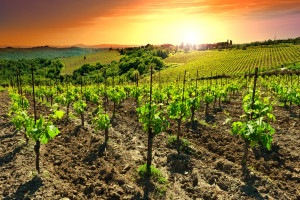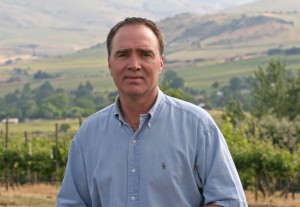Today we have a 2016 SWE Conference Preview on Gregory Jones’ session entitled “Climate, Grapes, and Wine: Understanding Terroir Influences in a Variable and Changing Climate”
If there were ever an opportunity to grasp the complexities of climate change’s effect on viticulture, it is during this session with world-renowned climatologist Gregory Jones. Gregory conducts applied research for the Oregon wine industry as well as many other viticultural areas around the world, as well as working as professor and research climatologist at Southern Oregon University.
In the realm of wine education, we are constantly asked how climate change will alter what we know to be the pillars of what we teach. Will Cabernet continue to grow in Bordeaux? Will we continue to see our vineyards migrating to the north, and to higher elevations?
Gregory believes that climate change is not just about the warming of the world’s vineyards, but a variability that is truly starting to affect the concept of terroir. Completing his PhD at the University of Virginia, Gregory wrote his dissertation on the climatology of viticulture in Bordeaux and has contributed to or has been cited in almost every substantial climate study conducted in the last 15 years. He even contributed to the 2008 Nobel Prize Winning Intergovernmental Panel on Climate Change Report!
In a recent publication, Gregory states that the ideal climate—in terms of heat degree days, precipitation, heat spikes, and the like—is only ideal when considered in the context of a particular grape variety. Furthermore, this optimum climate allows the vine a more equitable growth cycle which synchronizes with what he terms the four ripeness clocks—sugar accumulation, acid respiration, phenolic ripeness, and fruit character.
He goes on to say that the grower and the wine professional can no longer rely on tried-and-true ideas of “ideal climates: due to the variability derived from large scale atmospheric and oceanic interactions, El Niño-Southern Oscillation (ENSO) being one of the most prominent examples.
Finally, Gregory always ties all the info back to what is important to the wine professional as well as where we are headed as an industry. This is a session not to miss.
Gregory V. Jones is a professor and research climatologist in the Department of Environmental Science and Policy at Southern Oregon University who specializes in the study of climate structure and suitability for viticulture, and how climate variability and change influence grapevine growth, wine production and quality. He conducts applied research for the grape and wine industry in Oregon and many regions worldwide and has given hundreds of international, national, and regional presentations on climate and wine-related research. He is the author of numerous book chapters and other reports and articles on wine economics, grapevine phenology, site assessment methods for viticulture, climatological assessments of viticultural potential, and climate variability and change impacts on wine production. Gregory’s session, “Climate, Grapes, and Wine: Understanding Terroir Influences in a Variable and Changing Climate” will be held on Thursday, August 11, 2016 as part of SWE’s 40th Annual Conference, to be held in Washington, DC.

